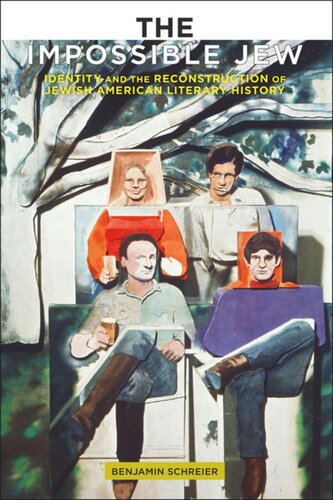

Most ebook files are in PDF format, so you can easily read them using various software such as Foxit Reader or directly on the Google Chrome browser.
Some ebook files are released by publishers in other formats such as .awz, .mobi, .epub, .fb2, etc. You may need to install specific software to read these formats on mobile/PC, such as Calibre.
Please read the tutorial at this link: https://ebookbell.com/faq
We offer FREE conversion to the popular formats you request; however, this may take some time. Therefore, right after payment, please email us, and we will try to provide the service as quickly as possible.
For some exceptional file formats or broken links (if any), please refrain from opening any disputes. Instead, email us first, and we will try to assist within a maximum of 6 hours.
EbookBell Team

4.0
76 reviewsHe destroys in order to create. In a sweeping critique of the field, Benjamin Schreier resituates Jewish Studies in order to make room for a critical study of identity and identification. Displacing the assumption that Jewish Studies is necessarily the study of Jews, this book aims to break down the walls of the academic ghetto in which the study of Jewish American literature often seems to be contained: alienated from fields like comparative ethnicity studies, American studies, and multicultural studies; suffering from the unwillingness of Jewish Studies to accept critical literary studies as a legitimate part of its project; and so often refusing itself to engage in self-critique.
The Impossible Jew interrogates how the concept of identity is critically put to work by identity-based literary study. Through readings of key authors from across the canon of Jewish American literature and culture—including Abraham Cahan, the New York Intellectuals, Philip Roth, and Jonathan Safran Foer—Benjamin Schreier shows how texts resist the historicist expectation that self-evident Jewish populations are represented in and recoverable from them. Through ornate, scabrous, funny polemics, Schreier draws the lines of relation between Jewish American literary study and American studies, multiethnic studies, critical theory, and Jewish Studies formations. He maintains that a Jewish Studies beyond ethnicity is essential for a viable future of Jewish literary study.